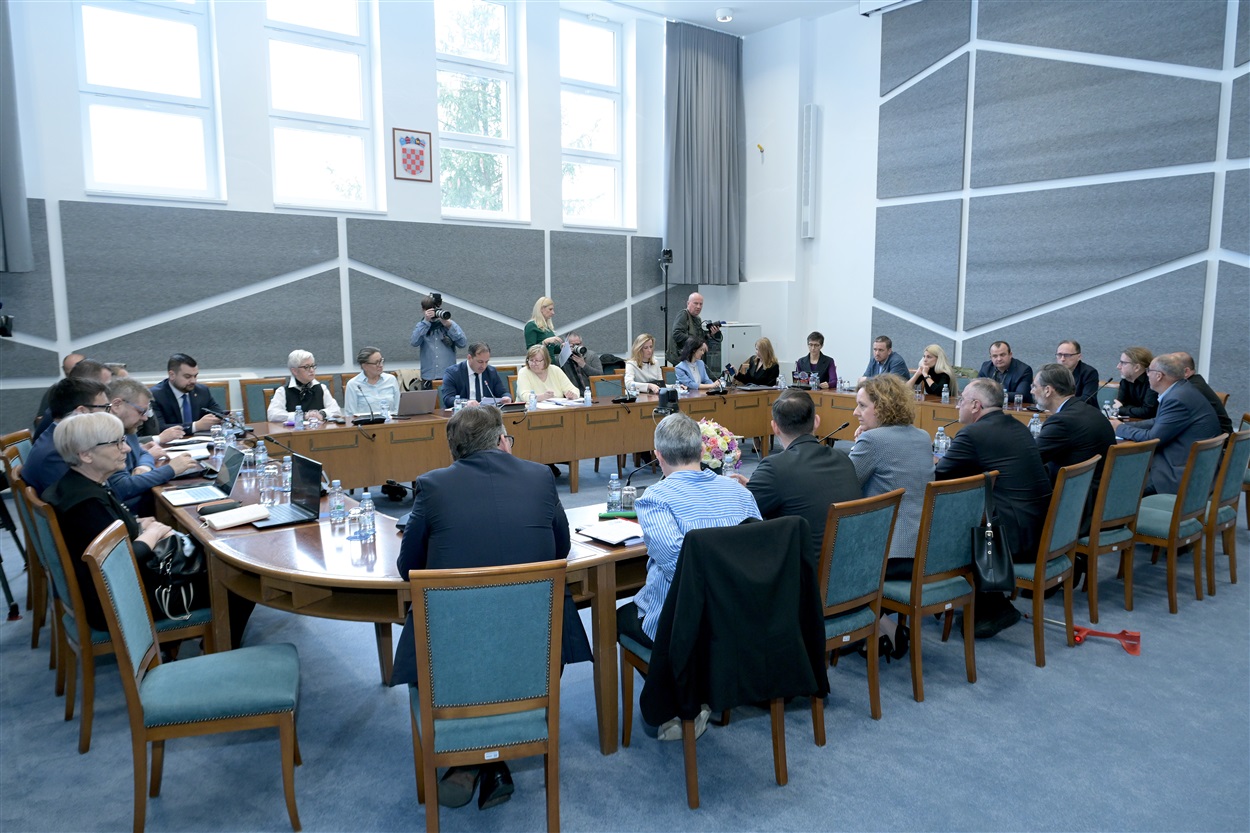
At a session of the Croatian Parliament’s Committee on Media, Dario Špelić, workers’ representative on HRT’s Supervisory Board, explained why the so-called Consolidation Plan is problematic. He argued that if a serious job was intended, then an external consulting firm should have been hired to conduct a detailed, forensic audit of HRT’s operations. Such an audit would have provided both HRT and its founding representative, the Croatian Government, with an accurate picture of the company’s state. Instead, we have a document that exists merely for the sake of existing.
Croatian Radiotelevision (HRT) is officially operating at a loss. Since running a deficit is prohibited by both the HRT Act and the organization’s Statute, HRT has been kept legally afloat only through extraordinary budget infusions from the Croatian Government. Between 2013 and 2023, HRT operated with a surplus. In 2024, it was saved from deficit by an €18.3 million government subsidy. This year, another €22 million is needed to cover losses. Without a miracle, 2026 will likely require yet another bailout.
HRT’s revenues have been stagnant for years. Some income streams, such as advertising, have grown modestly—but strict legal limits on radio and TV advertising prevent any significant marketing revenue. These small improvements are not enough to offset the financial gap. Špelić noted that HRT’s main source of funding remains the license fee.
-
In 2024, HRT collected €152,349,101 from the license fee, although the Financial Plan projected €159.8 million. That’s a shortfall of €7 million. For 2025, the plan again projects nearly €160 million, but it remains unclear whether this will be realistically collectible. Meanwhile, HRT’s expenditures continue to rise year over year. Some of this increase can be attributed to inflation, but certainly not all of it.
In 2015, HRT allocated HRK 35 million for acquiring content from independent producers, as required by Article 11 of the HRT Act. By the final year of the kuna as legal tender, that figure had risen to HRK 90 million. HRT is also in debt. According to the 2025 Financial Plan, its debt at the end of 2024 is estimated at €57.49 million. By the end of 2025, the debt is projected to reach €65.4 million. If HRT is lucky, it won’t need to take out a second planned loan this year. Otherwise, it will find itself borrowing each year just to repay previous debts.
All of this indicates that HRT clearly needs restructuring—but the real question is: what kind? A proper restructuring would require a thorough reevaluation of the programming strategy, the current state of which is encapsulated in the title of the strategic document submitted to the Supervisory Board by HRT’s current Director-General, Robert Šveb: “The Return of Relevance.” As Špelić pointed out: “You don’t return something you already have; you return something you’ve lost.”
A true restructuring would entail a detailed audit of HRT’s operations and costs. Instead, we got a Consolidation Plan that is best described by its own Annex V: “The primary sources used in the preparation of this report were materials provided by HRT and interviews with HRT management and staff… While the information in this document is provided in good faith, it is not considered comprehensive or independently verified. Deloitte did not have a mandate to conduct independent verification of the accuracy or completeness of the information, nor to analyze the adequacy of the data provided. Therefore, Deloitte cannot take responsibility for the accuracy or completeness of the information presented.”
Špelić emphasized: “Deloitte’s engagement did not include a forensic review of the documentation or operations. As such, they cannot be held accountable for any inaccuracies or shortcomings in the data used.”
In essence, an external consulting firm drafted a plan based solely on data and interviews with HRT management—the very people largely responsible for the organization’s current need for consolidation. If there had been a genuine intention to do things properly, the consulting firm would have been tasked with conducting a forensic audit that would offer a true reflection of the situation to both HRT and the Government. Instead, we’re left with a document created just for the sake of being created,” Špelić concluded.